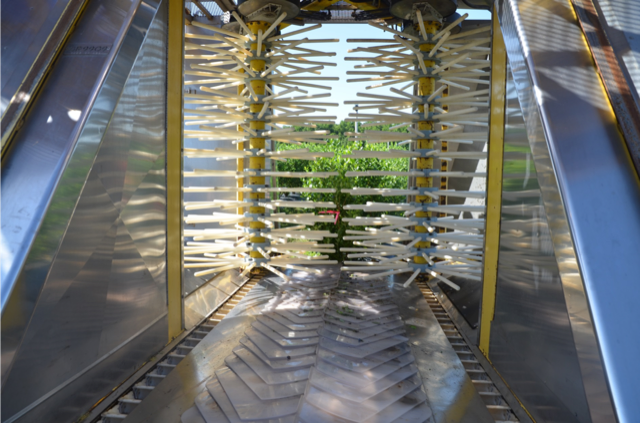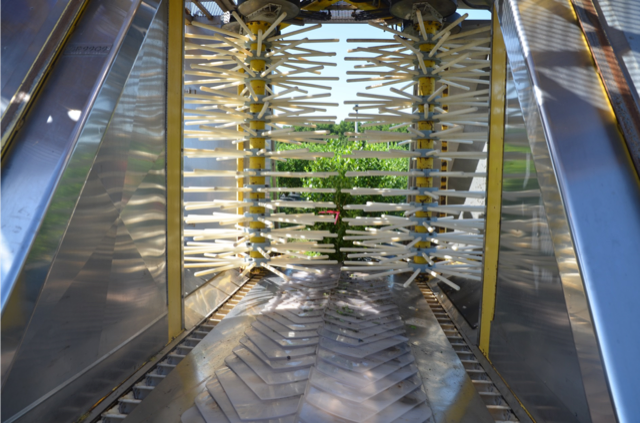By Clint Thompson
Precision agriculture will be of vital importance in specialty crop producers remaining sustainable for the foreseeable future.

U.S. Senator Jon Ossoff (D-GA) understands that fact after discussing with Georgia producers what their most significant needs are. It is why he partnered with U.S. Senators Marco Rubio (R-FL) and Raphael Warnock (D-GA) to introduce bipartisan legislation that authorized the U.S. Department of Agriculture to make priority research grants available for land-grant universities to research and develop agricultural applications of artificial intelligence (AI), advanced mechanized harvester technologies, invasive species control and aquaculture.

“Growers have the prospect of being able to reduce input costs, increase yields and increase quality using new technologies. At a moment like this for the industry, that’s particularly important. I think it’s still too hard, particularly for small and medium-sized growers, to access a lot of this technology because of the costs,” Ossoff said. “Senator Rubio and I have partnered on this bill to support research and development at, for example, UGA and Fort Valley State, into precision agriculture. The use of these sensors and the software are already empowering a lot of farmers to reduce the water and chemical requirements and to be able to grow their crops in a way that maximizes yield and quality.
“I’m a big believer in precision agriculture. Of course, it’s not the be all end all. It’s going to take a while to be widely adopted and for us to understand its full power. I’m taking the lead in the Senate on trying to propel this technology forward and make it more cost effective for small and medium-sized growers.”
Labor Expenses
One facet of precision agriculture that needs to be developed more rapidly is through automation, specifically with mechanical harvesters. Labor expenses are at an all-time high throughout the specialty crop sector. If growers could use machines to harvest most of their crops, it would drastically reduce the need for H-2A workers.
“It’s a labor-intensive business and particularly what’s happened with the AEWR in the last year, the ability to apply this technology to reduce input costs, whether it’s labor, chemicals, water, all stand to help farmers improve their bottom line and get on a more sustainable economic footing,” Ossoff said.










